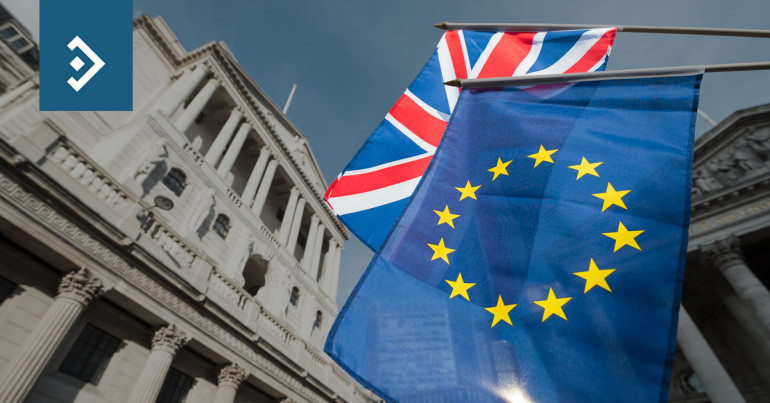
Swiss-style Brexit deal discussed
Morning mid-market rates – The majors
21st November: Highlights
- It’s not enough for Labour to simply not be the Conservatives!
- No pivot any time soon
- Fragile Eurozone keeps its optimism
GBP – Business leaders like the idea of closer ties
It is the role of the Opposition to hold the Government to account and offer alternative policies. They seem to be succeeding in the former task but failing in the latter.
The Leader of the Labour Party, Sir Keir Starmer and his Shadow Chancellor, Rachel Reeves, have been fiercely critical of the Conservatives, whom they accuse of driving the economy into the ground during twelve years in Government. Still, neither has offered any workable alternative to the tax rises and spending cuts announced last week.
There is a row brewing between the Government and business leaders about a proposal that the UK adopt a Swiss-Style arrangement with the EU as part of Brexit.
Switzerland has access to the single market and there is free movement of people. In exchange, Switzerland pays into the EU budget.
Eurosceptic MPs are calling the proposal a betrayal, while business leaders see it as a way of easing the significant issues which still exist in their supply chains. Staff shortages plague the leisure sector due to restrictions imposed on the employment of low-paid workers from EU states.
The latest figures for employment and inflation underline the scale of the government’s challenge.
While wage increases are rising at their highest rate since the 1980s, the rate of inflation means that, in real terms, they are still falling.
The proposals outlined last week by Jeremy Hunt are designed to see inflation fall by next summer, but it feels like he has given with one hand while some of the benefits are taken away with the other.
This week, PMI data will be released, which is expected to show that output still is well below the level that denotes a contraction continues to fall.
MPC members, Pill, Cunliffe, Mann, and Ramsden will all make speeches. It will be interesting to note if there is any deviation from them concerning the continued tightening of monetary policy.
The Autumn Statement buoyed the pound as the markets voiced their approval of the Chancellor’s measures. It rose to a high of 1.2028 versus the dollar but closed at 1.1883. Against the euro, it reached a high of 1.1583, but stayed well shy of its recent high of 1.1667.
Recommend our services and earn up to £75 per successful referral
USD – Inflation will fall once employment pressure recedes
Short-term interest rates have been raised at every meeting since March, and it seems that Jerome Powell and his colleagues have reached a point where there is a degree of infatuation with driving interest rates lower virtually at any cost.
While there have been a few comments made by FOMC members about signs of moderation in the rate of inflation, it seems that until there is a significant fall in the number of new jobs created, they will continue to hike rates.
There is no sign of a pivot in the Fed’s actions yet, although there is still speculation that the rate will slow to fifty basis points from the seventy-five seen at the past four meetings.
Powell’s seeming infatuation with fighting inflation seems to stem from his comments eighteen months ago that inflation was transitory and a factor of the economy’s emergence from the Pandemic.
While this premise was clearly incorrect, he was overtaken to a certain extent by events that saw energy prices rise exponentially. At the same time, Russia’s invasion of Ukraine affected the entire global economy.
The price of oil saw significant falls last week as WTI closed at $80.08 a barrel as fears of a slowdown in China offset the possibility that Russia will cut supplies as the EU tightens sanctions.
This will influence headline inflation, which has been moderating recently in any event. Core inflation, where volatile items like energy and food are stripped out, has also begun to fall as the effect of higher rates on the housing market feeds through into rental values.
The dollar continued its correction from twenty-year highs last week. The dollar index fell to a low of 105.31 but recovered to close at 106.96.
EUR – How long will the stronger economies carry the weaklings?
Inflation has been rising for most of the past year. Still, the Central Bank has been stymied to a considerable extent by the need to keep interest low and pump liquidity into the market to support weaker economies.
During the financial crisis ten years ago, Germany exerted its financial might and countries like Greece and Cyprus adopted severe austerity measures since it was able to exert pressure that carried the threat of expulsion from the Union.
Now through sheer weight of numbers and because the German economy is weakening and taking other nations with it, the weaker economies have turned the tables, not just on Germany but other members of the frugal five. That has meant that interest rates have remained low even as inflation has risen rapidly.
Short-term interest rates are still shy of the neutral level, where they are neither accommodative nor restrictive, and it is beholden on the central bank to act to drive inflation lower since that is a major plank of its mandate.
Last week, data for industrial production was released. Although it showed a healthy increase year-on-year, the month-on-month figures illustrated the rate at which output is declining. Preliminary figures for third quarter GDP were also published, showing that quarter-on-quarter, the economy grew by just 0.2% while year-on-year growth was 2.1%.
The ECB is still struggling with the premise that the economy won’t fall into a recession, despite senior figures admitting that the current quarter and the first three months of 2023 will see the economy contract.
This week, composite output data will be released for the Eurozone. It will still show that productivity is falling, but the rate of contraction is slowing, which may lead the markets to believe that the economy may be bottoming out.
Last week, the euro took advantage of the dollar’s fall to establish itself above the 1.0320 level, but its rise still appears laboured and subject to further weakness.
Alan Hill
Alan has been involved in the FX market for more than 25 years and brings a wealth of experience to his content. His knowledge has been gained while trading through some of the most volatile periods of recent history. His commentary relies on an understanding of past events and how they will affect future market performance.



